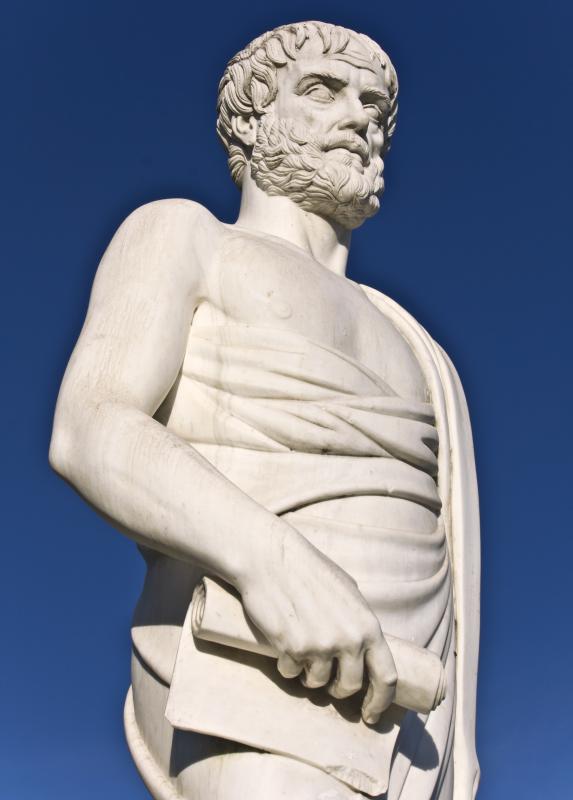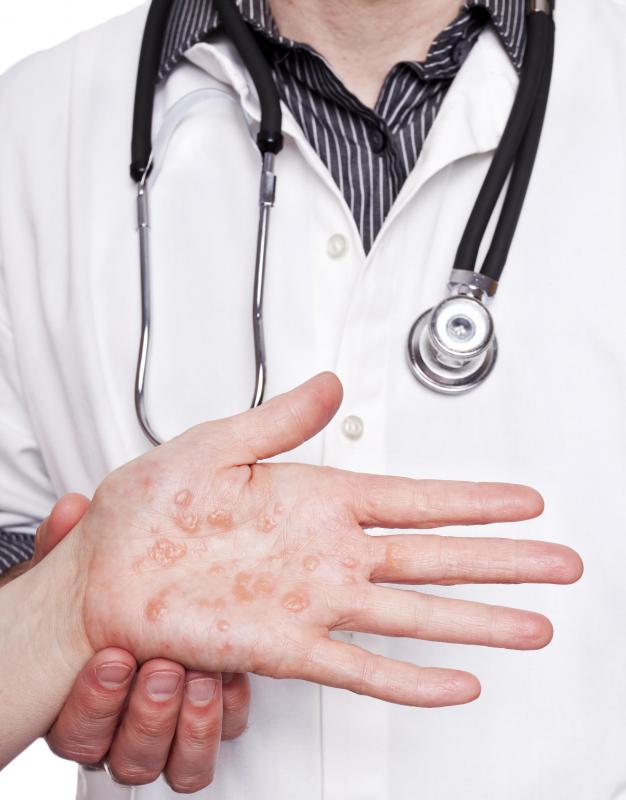At TheHealthBoard, we're committed to delivering accurate, trustworthy information. Our expert-authored content is rigorously fact-checked and sourced from credible authorities. Discover how we uphold the highest standards in providing you with reliable knowledge.
What is Propolis Extract?
Propolis extract is a complex chemical that is processed by honeybees from resin they collect from trees and plants. The bees use this plant extract to seal their hives and protect it from infection. Humans use it as a natural or homeopathic treatment for a variety of medical situations.
The word propolis, which means "defender of the city" in Greek, may have been created by the philosopher Aristotle, who determined that the bees used it for protecting their hives. It is the use of propolis that makes the beehive a very sterile environment. If something invades the hive, the bees kill it. If it cannot be removed, they cover the dead invader with the resin which seals it and prevents decomposition and contamination of the hive.

The chemical makeup of propolis consists of proteins, amino acids, vitamins, trace minerals, and flavonoids. This makes propolis extract a natural immune support and infection fighter. The trace minerals include zinc, copper, iron, and manganese. It is a rich source of bioflavinoids.
The healing properties of propolis have been claimed by many people for centuries and has been used by many cultures around the world as an herbal remedy to heal wounds. It was used by the ancient Egyptians in the mummification process because it kept the corpse free from infection and fungus and prevented decomposition. In recent years, there have been scientific and pharmacological studies documenting, among others, the antiseptic, antioxidant, antifungal, and antiviral properties of propolis.

It is used as an herbal remedy to treat a variety of ailments, including respiratory problems, joint problems, and healing wounds. It may be helpful in reducing strokes, controlling free radicals, and in treating acne, psoriasis and eczema. Propolis extract may help prevent damage caused by lead, mercury, and caladium, and aid in the absorption of certain nutrients.

Propolis extract is most commonly dark brown; however, the color varies from red to green to brown, depending on what botanical source and part of the world it comes from. It can be found in homeopathic remedies as a tincture in alcohol, as a liquid without alcohol, in tables, and in capsules. It is found as an ingredient in herbal toothpaste and mouthwash.

The only known allergic side effects of propolis are some cases of allergic reaction to bee products. Propolis extract is available at most health food stores and from various sites on the Internet that sell herbal remedies, plant extracts, and homeopathic remedies. It is always a good idea to consult with an expert before using any homeopathic remedy or herbal supplement.
AS FEATURED ON:
AS FEATURED ON:

















Discussion Comments
Propolis is great, but it's important to remember that there are a number of side effects too, and that propolis liquid extract or propolis tablets simply aren't for everyone.
First, as you mentioned in the article, those with any kind of bee allergies should absolutely not use propolis. It has been known to cause severe allergic reactions very similar to that of bee stings, and can be life-threatening if not treated appropriately.
Secondly, those with asthma should probably try to avoid taking propolis supplements unless they are of extremely high quality, since any impurities could possibly trigger an asthma attack.
Also, pregnant women and those who are nursing should not take propolis extract supplements, no matter where they're from. There is simply not enough research on how propolis interacts with a pregnant body, and it may be transmitted in breast milk, so those who are pregnant or nursing should not take it.
Finally, anyone who has had past allergies to black poplar or balsam of Peru should not take propolis supplements, since it can cause a similar allergic reaction.
And as always, remember that you need to consult with a doctor or nutritionist before taking propolis or any kind of herbal tea or extract, since every person's body has different nutritional and medicinal needs.
My sister just started taking Brazilian propolis extract, and she is crazy about it. She started taking it for her eczema, and it really does seem to be working pretty well so far.
She had tried all kinds of extracts, herbal and non-herbal, as well as herbal teas before, but nothing seemed to work as well as the propolis has done so far.
Here's hoping that it keeps working and she can keep reaping all those great propolis extract benefits!
I had heard this term thrown around but never actually new what it was. So it's bee resin. I wonder who actually first had the idea to use that stuff? I mean, it doesn't look particularly appetizing, I would imagine.
However, I guess that all the benefits that it has really does outweigh the appetite factor. But have they been scientifically proven, or is this just speculative? I mean, are there studies about the different propolis benefits, or is it just anecdotal evidence?
I would love to learn more about the science behind propolis extract, and why it works like it does, if there's any sort of information like that out there.
This sounds like a really fascinating thing, I hope that I can learn more about it.
Post your comments